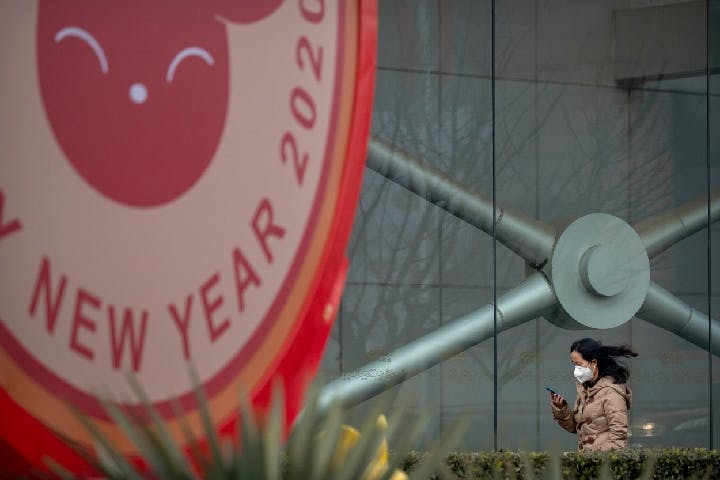Spring 2021
Parallel Narratives
– Rui Zhong
Political amnesia in China and the U.S. endangers communities – and damages public health responses.
In February 2020, Dr. Li Wenliang took his last breath in an ICU similar to many others in Wuhan. A precipitous spike in COVID-19 cases in that city left the hospital corridor packed with frantic doctors and nurses tending to patients.
Yet Dr. Li was no ordinary patient. Weeks prior to his death, the physician was apprehended by hospital officials and forced to sign a disciplinary agreement not to spread rumors about the virus that was ending his life.
What concerned these officials was that Dr. Li had taken on the role of a whistleblower. He had publicly discussed the strange symptoms experienced by his patients on the Wechat platform. None of the doctors in Wuhan knew precisely what they had on their hands with the novel coronavirus that causes COVID-19 at that early moment, but it reminded them of the SARS epidemic that raised alarms across China in the early 2000s.
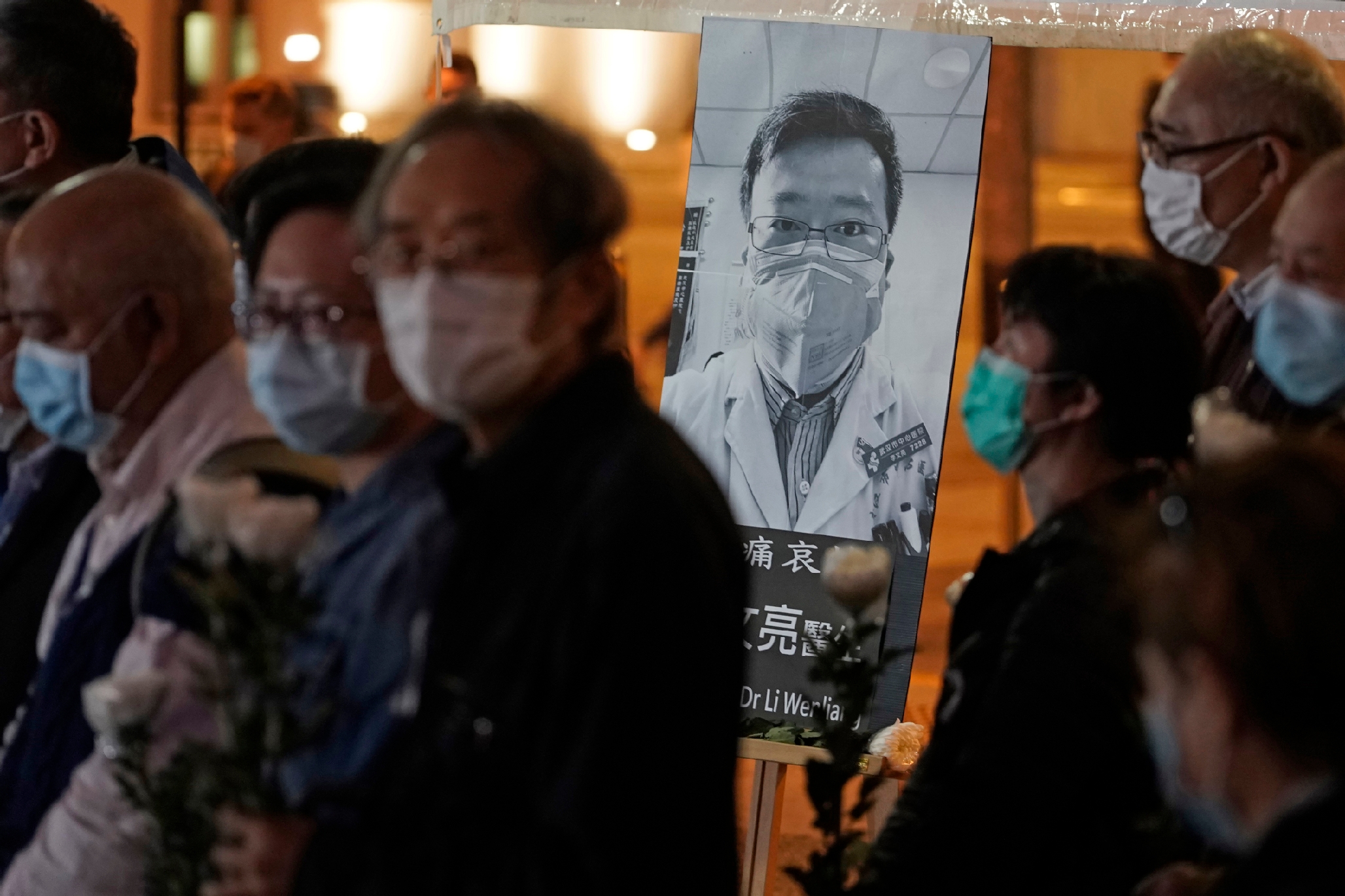
The suppression and threats were a prelude to Dr. Li’s immense personal tragedy. Like many victims of COVID-19, he died far away from the wife and children whom he cherished. One of the last photographs taken of him alive showed him hooked up to oxygen machines, with his face partially obscured by tubes.
In the hours after Wuhan Central Hospital announced Dr. Li’s death on the social media platform Weibo, one user wrote: “What else can we do? The only thing is not to forget.”
Yet like many pivotal events chronicled in China’s political history, the task of remembering Dr. Li’s death (and, more importantly, reflecting upon it), was far easier said than done. Just as the COVID-19 virus did not remain in China, the amnesia of COVID politics does not end at the river’s edge of the Yangtze, nor at the edges of the Pacific Ocean which divides Asia and North America.
“What else can we do? The only thing is not to forget.”
The connection between Dr. Li’s life and death and COVID-19 carried many meanings. But among the most significant was that it was a political flashpoint. It challenged the way that Chinese authorities, both municipal and national, handled information that they unilaterally deemed sensitive.
Dr. Li’s death was not simply a personal tragedy, nor only the result of a preventable outbreak of fever and severe respiratory illness within both Wuhan and the Hubei province. It also proved to be the first of many occasions in which whistleblowers bearing less than ideal political news were silenced – in China and beyond.
“Rumor” and Repression
The news of Li Wenliang’s passing prompted a brief, broad-based flash of outrage in China over government censorship overreach. After all, he was a doctor who had (by all accounts) worked outside of the realm of sensitive politics, even as defined by the standards of China’s tightening social space. Yet even he was not free from discipline. His information simply had the misfortune of being politically inconvenient to specific officials at a specific time.
While Li struggled with the weight of signing a disciplinary document, officials in Wuhan were busy rolling out large-attendance, public New Year events. Knowledge of COVID-19’s ability to pass from human to human was suppressed until Dr. Zhong Nanshan, one of China’s top epidemiologists, confirmed this trait of the disease on January 20th. Just days later, Wuhan began a 76-day lockdown, as officials finally began imposing stricter quarantining measures.
This fundamental problem of this delay in messaging was not lost on the general public, even one accustomed to censorship on Chinese websites and messaging platforms. If health care professionals are not trusted by governments, then a systemic problem exists – with legitimate political grievances attached to it.
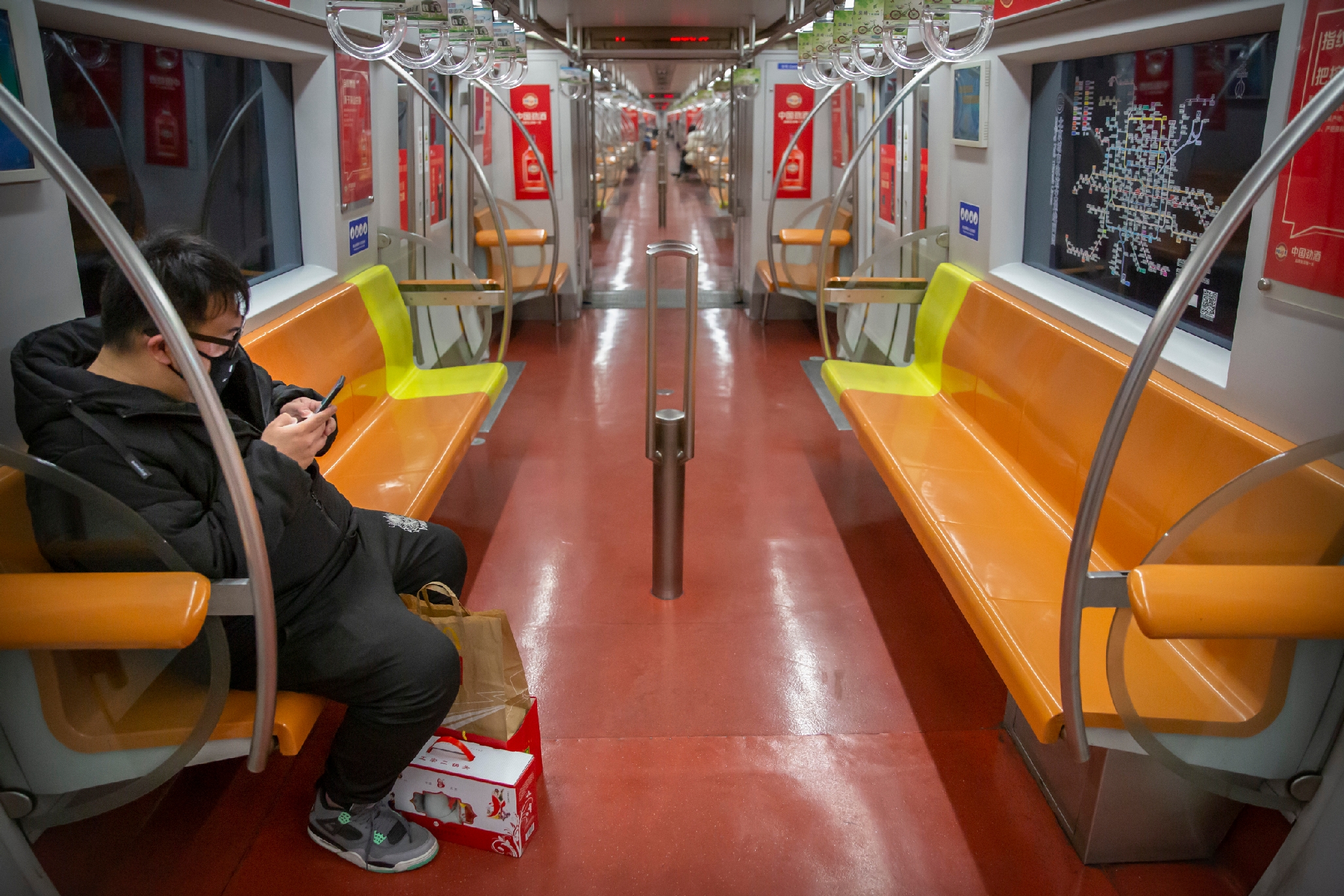
The informal social contract that China’s authoritarian government maintains with its citizens can withstand significant tension. However, a outbreak that was preventable based on information that was quashed was a boiling point that politicians could not initially contain. “Wuhan government owes Dr. Li Wenliang an apology” and other similar tags quickly trended on Weibo, alongside calls for support for doctors by netizens who felt betrayed by local officials.
Eventually, this upswell of public anger was quelled over subsequent months through a combination of censorship – as well as a torrent of state-backed “positive energy” news on how China’s number of COVID-19 cases were eventually lowered. Accounts of the heroism of legitimately hardworking professionals are difficult to counter, and by flooding newspapers and web articles with them, opportunities for political criticism of the government were diminished.
In 2021, the messages on Li Wenliang’s Weibo wall demonstrate how clearly these tactics have worked. Posts to the page, which are still being written to this day, are distanced from the doctor’s career and Wechat whistleblowing, and the space serves as a “wailing wall” where commenters share life developments or milestones in China’s efforts against COVID-19.
Even on a page where the physician’s life is commemorated, any complaints about the confession extracted from him under duress (as well as his promise not to spread “rumors” about the virus which were later proven true) are verboten.
If health care professionals are not trusted by governments, then a systemic problem exists – with legitimate political grievances attached to it.
While those in China with bitter memories of the disease strain not to forget the toll of COVID-19, its policy leaders have never swerved from a different priority: the safety of the Communist Party and those who hold sway within it.
Before he died, Dr. Li was not an anomaly. The charge made against him and seven other doctors was “spreading rumors” – a practice broadly applied in Chinese politics and used to suppress not only political dissent, but also (at times) actions simply deemed inconvenient to leadership in a particular moment. Their public revelation of a new disease with “SARS-like symptoms” spread from human to human proved inconvenient to Wuhan municipal leaders and Hubei’s provincial officials counting on profits from commercial activity and cultural clout associated with 2021 New Year Celebrations.
One year after Li Wenliang’s death, accounts of his life have been repeated in his native China and in the world beyond it. Within China itself, which has branded him a martyr, remembering him (and other doctors subsequently deemed heroic) as anything but aligned with the state is a controversy in itself.
This revision was accomplished through an information campaign as thorough as the initial silencing of their alarm about COVID-19, albeit implemented with more care and emotional empathy. This propaganda characterized China’s containment efforts as a “war” on the pandemic, and valorized doctors, nurses and frontline workers who served in sickrooms and quarantine centers. By putting such officials and workers front and center, China’s government deflected any criticism and began the process of using “positive energy” propaganda. It was an approach that nudged the public towards remembering the good fight against the pandemic, and elided missteps made by the state in its early days.
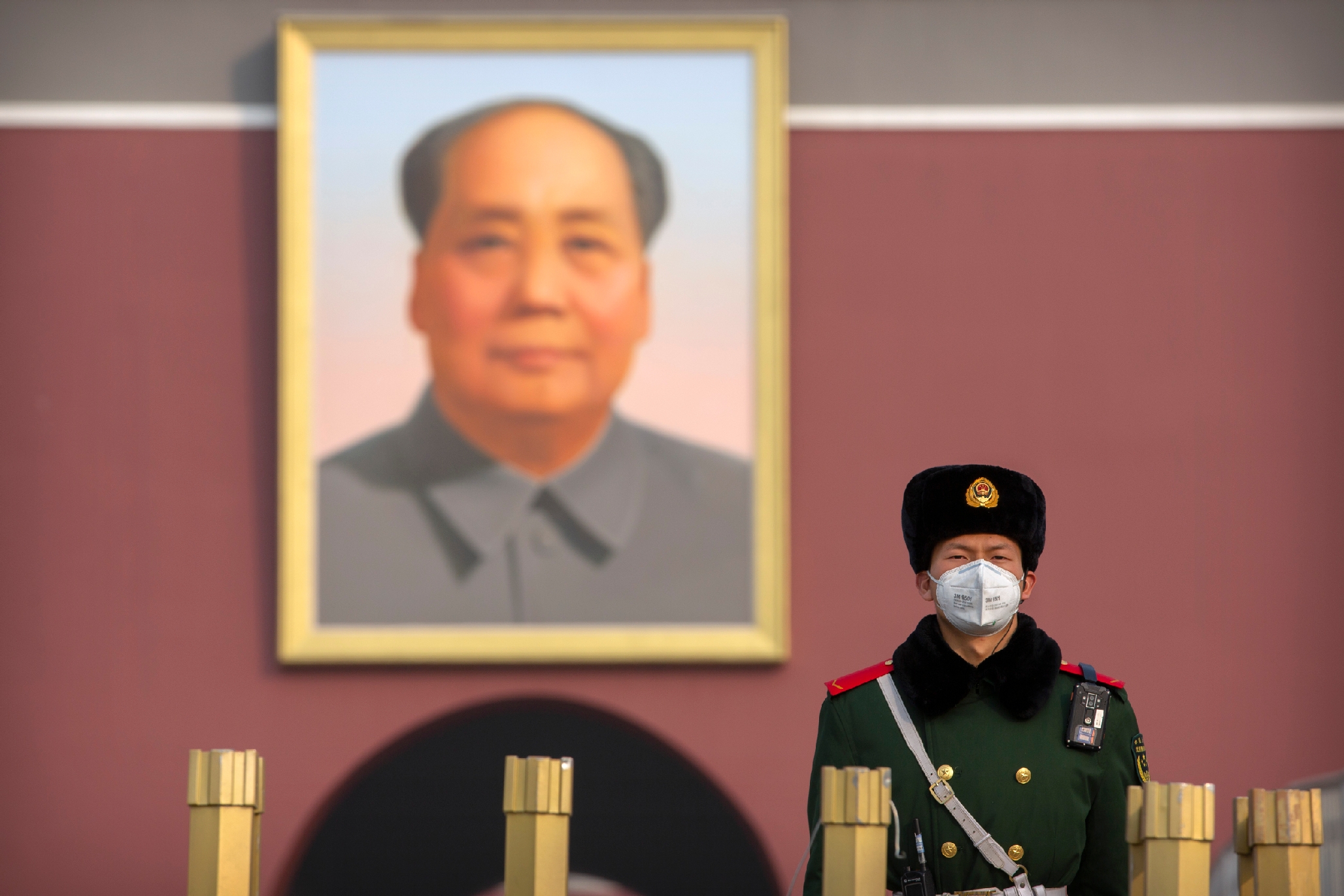
Meanwhile, those who worked to preserve censored articles or root out information related to COVID-19 were jailed or disappeared. Cai Wei, who archived articles and blog posts using GitHub, was imprisoned. Citizen journalist Chen Qiushi went into Wuhan to report on hospital conditions, but disappeared for months before eventually reemerging under surveillance.
Even survivors of the pandemic and early political crackdowns have not emerged unscathed. Take Dr. Ai Fen, director of Emergency Medicine at Wuhan Central hospital. In a notable photograph, she stands tall in her medical coat, her shoes covered by plastic covers. It is an image taken from a 2020 issue of Renwu magazine with an interview titled “The One Who Gave Out Whistles.”
In this article, Dr. Ai discussed the difficulties she had in handling the response to COVID’s spread within Wuhan. “What these events have proven to me is the necessity of maintaining independent opinions,” she said at the close of the interview. “The world needs different perspectives, doesn’t it?” On its publication, however, the conversation was censored to such an extent that users had to translate it into emojis or disguise its contents with a scrolling marquee styled after the opening to Star Wars.
Those in China who worked to preserve censored articles or root out information related to COVID-19 were jailed or disappeared.
Subsequent events have been even more unkind to Dr. Ai, as a botched eye surgery has left her unable to work and depressed. In public discourse, she’s seen as a hero, but her words are watched carefully now.
More than this, however, the removal of this interview from circulation served as a cautionary tale – for both Dr. Ai and any journalists who profile pandemic workers. She has survived, but the memories of her 2020 experiences are controlled just as tightly as those of her dead colleagues. She owes her safety to an institution that unswervingly sticks to a narrative of COVID-19 response as a victory for the CCP.
China in 2021 is a landscape where many non-institutionally approved narratives are unacceptable to explore. Human tragedy is politically permissible, albeit never in any way that examines the motives of government actors, whose deeds are shaped by the nation’s political system. Within the system that its doctors lived and died in, the failures of Wuhan to contain its city-wide and province-wide tragedy will always be told in a way that never paints the complete picture of policy failures.
Flood Not Famine
Erasure of whistleblowers is not unique to China, even though the tools deployed there are characteristic of a homegrown system of censorship and propaganda-making. Indeed, the lessons learned by the United States from China’s experience in 2020 were not taken from that nation’s whistleblowers.
Rather, American governments, at both the federal and local levels, often replicated the initial actions taken by municipal and provincial officials in Wuhan and Hubei to deny, minimize and cover up the crisis. The shared trait might be described as a “political amnesia” that extends from the experiences of China’s hardest-hit communities to American officials who decided that they could balance a respiratory virus transmitted among humans and a service-oriented economy.
American whistleblowers emerged from different walks of life, inside and outside of its health sector. Health and Human Services official Dr. Rick Bright was sidelined from core decision-making activities out of NIH director Francis Collins’ fear of stepping on the toes of political appointees in the Trump Administration. Christian Smalls, a warehouse worker for Amazon’s distribution centers in New York, was fired and deemed “not smart or articulate” in retaliation for describing unsafe working conditions.
In meatpacking warehouses in the U.S. Midwest, closely clustered workers saw severe case numbers amongst them spike, only to watch as their workplaces remained at full or near-full capacity. By July of 2020, the US Centers for Disease Control (CDC) had counted over 16,000 cases reported at meat processing plants from the 23 states which had submitted numbers . One worker put it simply to a PBS news reporter: “We're still going to have to keep working in fear, but we know that we need to continue working. We have no option.”
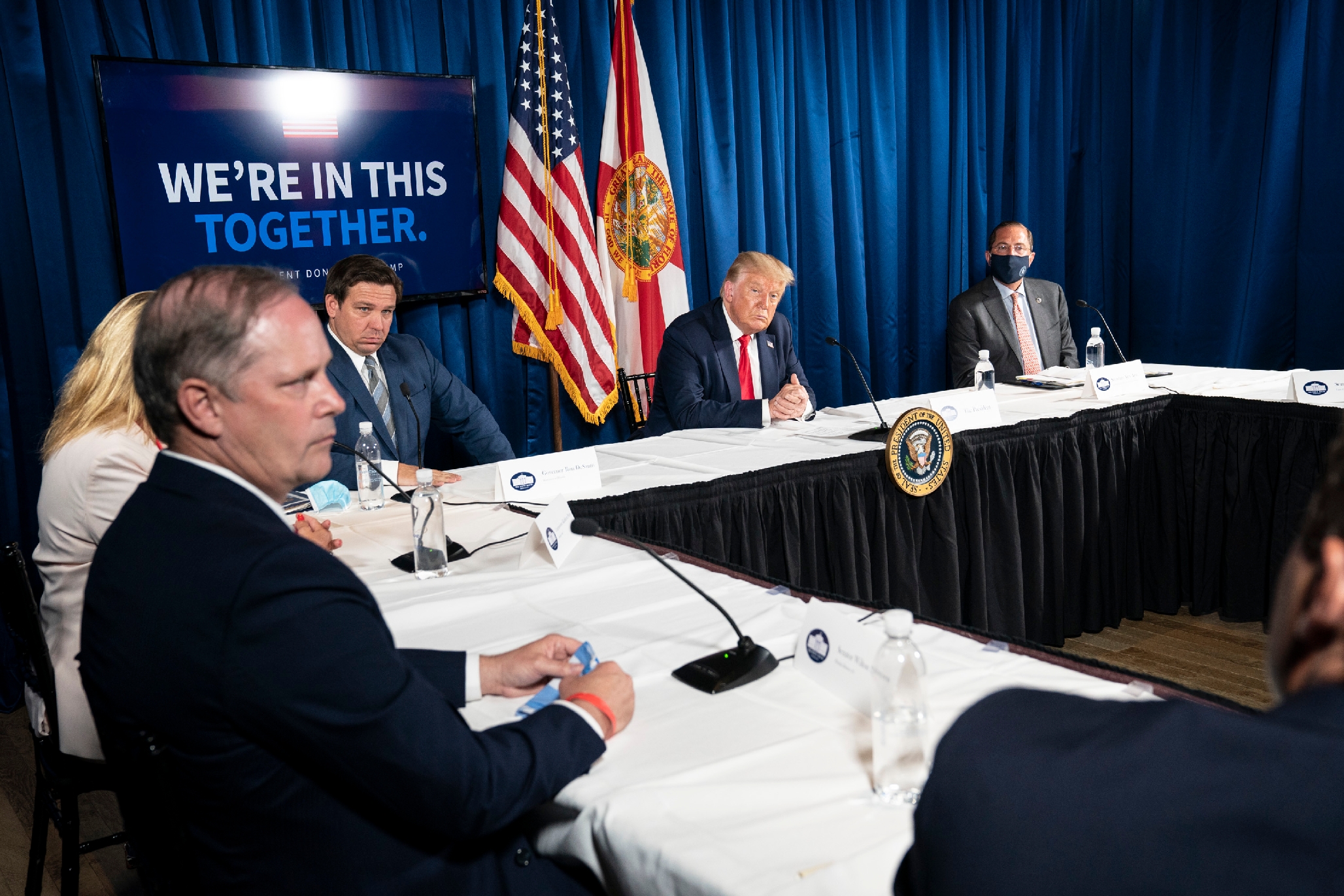
Mistakes from China were repeated also in the United States. Just as Hubei’s officials wanted to keep business-as-usual economics ticking, American restaurants and other businesses relying on indoor congregation often won government permission to open.
For instance, after a deadly initial surge in his state, New York Governor Andrew Cuomo pushed for in-person events to gradually increase capacity in the months afterwards. (It was later revealed that the governor and his staff covered up the number of nursing home deaths related to COVID-19.)
In Florida, Governor Ron DeSantis’ administration lifted capacity restrictions on businesses in September 2020. "Every business has the right to operate,” he explained. “Some of the locals can do reasonable regulations. But you can't just say ‘No.’" Eventually, one in every 29 Floridians reported experiencing COVID-19 symptoms.
Reopening swiftly – even in the face of contrary public health advice – has been the business of many of America’s mayors and governors in 2020 and 2021. Where there is profit to be made, political permission and support has followed.
Early in March 2021, as new variants sparked a fourth wave of cases, the governors of Texas, Connecticut, and Mississippi dropped mask mandates and limits on in-person gatherings. As a result, case numbers and deaths are rising (the latter total well above 540,000 in the U.S.) even as the prospect of an end to the crisis seems closer than ever.
Reopening swiftly – even in the face of contrary public health advice – has been the business of many of America’s mayors and governors in 2020 and 2021.
For a nation that has often indulged in terming COVID-19 as a “Wuhan flu,” the parallels in “political amnesia” between the United States and China is unsettling. There are distinct similarities in how political memory is used and shaped in both countries. As it has played out in the crisis of 2020 and 2021, “political amnesia” has required a repetition of specific messages in order to achieve an individual politician or a party’s goals.
In China, forgetting the political role played by the government to create and expand the crisis through its lack of transparency is the aim. But the suppression of information in the United States is different, and closer to what Margaret Roberts refers to as a “flooding” style of censorship, as opposed to the “friction” censorship deployed in China that places hindrances in the path of accessing information. No government institution in the U.S. serves the express purpose of suppressing accurate news from the U.S. internet, but a deluge of information and misinformation impedes any ability to quickly access best practices in working and living in a pandemic.
American media corporations may publish and editorialize with little fear of government crackdowns, yet the swell of misinformation nonetheless undoubtedly slows U.S. public health responses to COVID-19, and transforms science-based strategies into matters of mere cultural and political difference. Seemingly endless cycles of media debate over the efficacy of masks, or refusal to acknowledge the humanity of essential workers, undermine efforts to battle the virus and help those made most vulnerable by the pandemic.
The absence of information is essential in continuing business as usual in both countries. Where China’s government slowed the pace of information reaching its citizens to a crawl, American corporations that depend on activities performed in close proximity – such as meat-packing plants and Amazon warehouses – have flown under the radar in the fog of pandemic response, and continued to operate despite the clear risks posed to workers.
Policy choices should have been clear after the health risks associated with the pandemic were known, yet an ignorance or evasion of them has persisted through the pandemic’s peak in the United States. Yet when witnesses to the horrors of COVID-19 and shoddy management of the pandemic are allowed to speak for themselves, it often spurs a more democratized and humane policy.
.jpg)
Yet at the heart of mechanics of “political amnesia” is that such speech poses risks to political actors who may be damaged by requests for immediate action in the crisis and accountability in its aftermath.
We have seen how the prioritization of political safety for officials and the party worked in China. Similar actions by American leaders – mayors, governors, and other top officials – has incurred steep societal costs. The astronomical case counts and vast death toll in the United States are obvious. Yet the rhetoric about COVID-19 deployed to shift blame and evade responsibility has also brought xenophobia, as well as large upticks in discrimination and violence against people of Asian descent. Usage of the term “China Virus” or “Wuhan Virus” have become a particularly pivotal point of contention in American society.
Focusing on U.S.-China aspects of the pandemic, and casting the virus in international terms shifted essential time, attention and resources from local hospitals and communities under increasing economic and societal pressure. On March 17, 2021, this trend found its culmination when a gunman attacked a series of Asian-operated spas in the vicinity of Atlanta, Georgia.
Just as whistleblowers in China and the United States before them, the workers and customers who were victimized by this attack hadn’t expected themselves to be pulled into larger political events not entirely of their own making.
Forgetting Failure
One year into the pandemic, the effects of political amnesia about COVID-19 response in the United States continues to create a vicious cycle of tightening and relaxing domestic responses, including masks and social distancing. Despite more science-based public messaging from the Biden administration, COVID-19 case numbers continue to rise as of April 2021 as waves of reopenings occur in both Republican and Democratic states with large, dense populations. Nationalism has also made China a convenient scapegoat for the failures in U.S. pandemic response.
Yet, on closer examination, one sees how political amnesia has worked in the interest of leaders in both China and the United States. Whether by flood or by friction, censorship, conspiracy theories, and disinformation stymie and delay substantive scrutiny of political leaders. Chinese and American leaders prefer that unproven theories over a lab leak or American troop exercises circulate. It is far easier to focus attention on outside elements than deal with the complexities of domestic politics in our pandemic moment.
Many political failures are woven into the story of COVID-19. Yet to admit and directly address these failures would compel those responsible – whether they be Chinese provincial government officials or American mayors and governors – to relinquish power. Political amnesia has become the solution – a landscape in which every cover-up and spat offers an appearance of victory far easier to claim than defeat.
Rui Zhong is a Program Associate for the Kissinger Institute on China and the United States at the Wilson Center. Her writing also has appeared in Foreign Policy, The Washington Post, Chinafile and other outlets.
Cover Photograph: A woman wears a face mask as she walks past a display for the upcoming Lunar New Year in Beijing on January 22, 2020. (AP Photo/Mark Schiefelbein)
